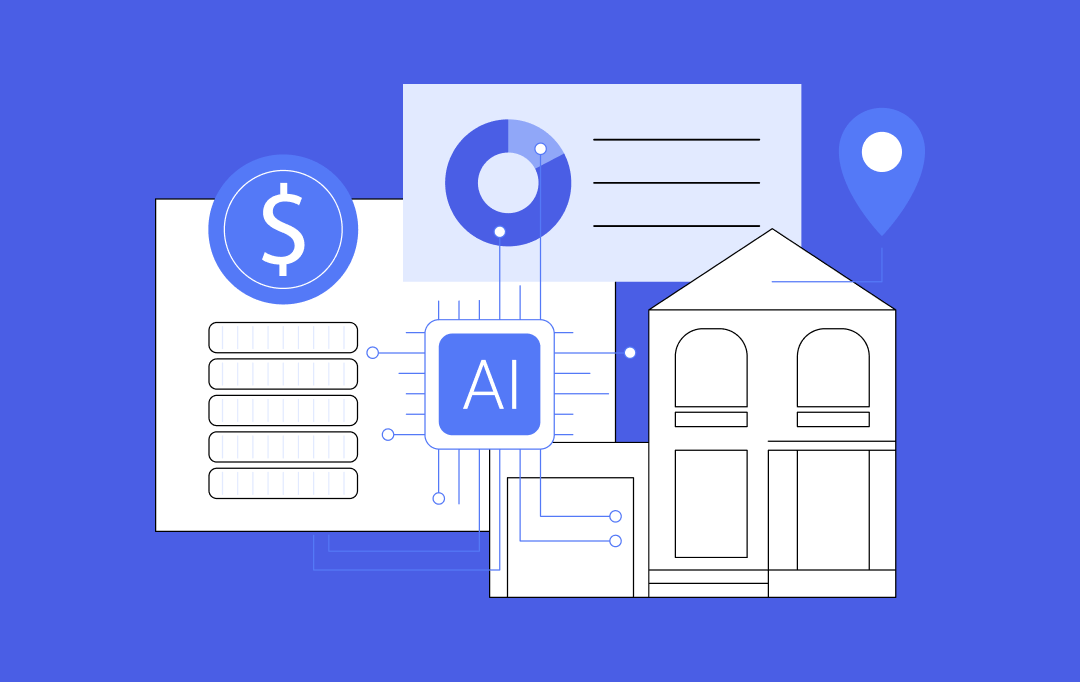- Advantages of Leveraging AI in Tourism and Travel
- Improved Travel Safety and Security
- Fraud Detection
- Dynamic Pricing
- Customized Travel Recommendations
- Weather And Traffic Prediction
- Virtual Travel Assistants
- Language Translation
- Enhanced Customer Experience
- AR/VR Experience
- Automated Travel Experience
- Use Cases of AI in Travel and Tourism
- Real World Examples
- Investments Required to Develop AI Travel Platform
- Navigating Emerging AI Trends in Travel and Tourism
- Fueling Travel Excellence: Your Strategic Partnership with Appinventiv
- FAQs
The travel and tourism industry has encountered challenges in the past few years: meeting diverse traveler expectations, optimizing operational efficiency, and enhancing travel security.
The powerful force of artificial intelligence has marked a new chapter in how people travel, seamlessly enhancing the efficiency of travel operations, personalized customer experiences, and elevated safety standards.
AI in the travel industry creates new personalized experiences where every approach is equipped with strategic research and tailored to individual necessities.
According to Statista, the global AI in travel market was valued at $81.3 billion in 2022 and is expected to reach $423.7 billion by 2027, growing at a CAGR of 35% between 2022 and 2027.
The emergence of artificial intelligence enables hotels to employ techniques for personalizing room temperature, lighting, and music based on guest demand.
The integration of AI technology has significantly augmented customer experience by providing real-time customer support, optimizing pricing strategies, and much more. Here, you will discover more about how AI in travel has impacted the industry.
Advantages of Leveraging AI in Tourism and Travel
The transformative force of artificial intelligence offers many advantages to the travel industry that enable businesses to elevate customers’ experience like never before. Let’s dive deep into understanding those advantages and their impact.

Improved Travel Safety and Security
AI-centric tools can efficiently discover potential threats at tourist destinations by focusing on robust security measures. It also can detect suspicious activities and flag possible fraudulent activities using real-time monitoring.
AI has significantly enhanced travel safety and security by introducing innovative technologies and intelligent systems. One notable improvement is in risk assessment and threat detection. AI travel has revolutionized airport security with advanced screening processes. Automated facial recognition systems, for example, can accurately identify and verify passengers, reducing the risk of identity fraud and improving overall security.
Fraud Detection
AI-based machine learning algorithms can analyze booking patterns and identify fraudulent transactions in real-time, protecting travelers and tourism businesses. By leveraging predictive analytics, companies can help identify potential fraudsters before they make bookings or claim insurance benefits.

Dynamic Pricing
Dynamic pricing is a sophisticated strategy used in the travel industry to adjust the prices of flights, hotels, and other services in real-time based on various factors. AI travel plays a crucial role in this process by analyzing vast amounts of data and using algorithms to predict demand, identify potential price fluctuations, and optimize revenue for tourism businesses. AI algorithms collect and analyze data from various sources, including surveys, booking platforms, real-time data, and travel history.
Demand elasticity, competitor pricing, and marginal cost are the prevalent price optimization strategies that maximize tourism businesses’ revenue while remaining competitive in the market.
Customized Travel Recommendations
By evaluating a large amount of data, including travel history, search behavior, and social media interaction, artificial intelligence recommends destinations, accommodations, and itineraries tailored to each traveler’s unique interests and preferences. Artificial intelligence has the potential to streamline the planning process, saving time and effort.
Weather And Traffic Prediction
The integration of artificial intelligence allows travelers to analyze data such as weather patterns and traffic volume, to provide more accurate and localized predictions compared to traditional forecasting methods.
Artificial intelligence is highly advantageous in proactive risk management, including rerouting transportation, adjusting travel schedules, and mitigating inconvenience, potential safety hazards, and cancellations.
Virtual Travel Assistants
Virtual Travel Assistants powered by Artificial Intelligence (AI) transform the tourism and travel industry by providing personalized and efficient travel experiences. VTAs offer round-the-clock assistance, answering questions, resolving issues, and providing real-time updates and information. Leveraging VTAs enables businesses to find real-time information and updates such as flight schedules, traffic, etc., ultimately simplifying the booking process.
Language Translation
One of the biggest challenges businesses encounter is the specific language for customers. AI-centric translation services enable seamless communication, enabling travelers to navigate foreign destinations easily.
The implementation of AI travel aids in comprehending local menus, signage, and conversation, enriching cultural experience by providing a thorough understanding of the destination.
AI for the travel industry enhances travelers’ confidence so that they efficiently navigate unfamiliar environments and ask for help in local activities.
Enhanced Customer Experience
AI for travel demonstrates advantages at every stage of the journey, whether pre-trip planning, during the trip, or post-trip engagement.
AI’s personalized recommendation, 24/7 multilingual concierge services, predictive insights, frictionless booking, and adaptive travel itineraries help elevate customers’ experience exceptionally.
By leveraging AI’s capabilities, the tourism industry can create a more enjoyable, efficient, and sustainable experience for everyone.
AR/VR Experience
AR and VR demonstrate significant advantages, such as virtual tours of destinations, allowing travelers to get a realistic feel for the location, attractions, and overall atmosphere.
VR brochures can bring the destination to life, showcasing astonishing visuals, interactive elements, and 360-degree views.
Leveraging AR and VR technology can educate travelers about local history, culture, and natural environment in an engaging manner, making learning memorable and enjoyable.
Automated Travel Experience
AI in travel and hospitality is paving the way for a more automated and seamless travel experience by reducing planning time, managing travel logistics, and providing real-time updates and assistance. With the help of artificial intelligence, businesses can automate administrative tasks like booking management, customer service inquiries, and data analysis, freeing up staff time and resources for higher-level tasks. Automating tasks can significantly reduce operational costs for tourism businesses, leading to increased profitability and improved resource allocation.
(Also Read: How Much Does Airbnb like App Development Costs)
Use Cases of AI in Travel and Tourism
Artificial intelligence transforms the travel and tourism industry’s work by offering myriad ways. Let’s explore the innovative solutions business leverage for enhancing traveler experience.

Hotel Search and Booking
AI in the travel industry provides smart algorithms that help customize recommendations, enrich the user experience, and declutter bookings, transforming the accommodations process.
Itinerary Planning and Recommendations
The use of AI in travel industry has enabled intelligent itinerary planning, providing customized suggestions, and tailoring journeys to personal preferences.
Predictive Analytics for Demand Forecasting
Applications of AI in travel industry include predictive analysis in forecasting demands. AI enhances resource allocation, customer experiences, and business adaptability to dynamic travel trends.
Facial Recognition
Applications of AI in travel have enhanced security and efficiency with facial recognition. Simplified check-ins, customized experiences, and border control ensure an effortless journey for travelers.
Chatbots for Customer Support
AI in travel sector has transformed customer support with chatbots and enhanced user experience. It answers queries, provides instant assistance, and facilitates travel-related information.
Real World Examples
The travel industry is undergoing a seismic shift powered by AI technology. Leading travel brands are now reaping the benefits of AI-powered solutions, witnessing demonstrably improved efficiency, streamlined operations, and unparalleled customer satisfaction. From personalized travel recommendations and dynamic pricing to automated booking processes and intelligent marketing campaigns, AI and travel together is unlocking a new era of growth and profitability for the travel industry.
Expedia’s Chatbot
Expedia’s Chatbot is a prime example of AI in travel. It helps customers book hotels and flights, provides constant assistance and personalized suggestions, answers queries, enriches the user experience, and eases the disorganized booking process. AI integration mitigates time and effort for travelers to book suitable travel options.
Marriott International
Marriott International, one of the renowned examples of AI in travel, adjusts room tariffs based on factors like demand and local events. This ensures competitive pricing, affordable choices, and revenue maximization. This approach portrays AI’s capabilities and personalization for an improved travel and tourism experience.
Investments Required to Develop AI Travel Platform
Nearly every brand that wants to maximize its business focuses on AI, which provides a holistic solution to make a business successful. The costs of developing AI solutions in the tourism industry can vary greatly depending on several factors, such as hiring a team of experts, data collection and training, customization, and complexity of the solution.
AI solutions for the travel and tourism industry include intelligent travel assistants with advanced features, regions, maintenance, and updates, which can incur additional costs. It differs from $100,000 to $300,000 for development.
Navigating Emerging AI Trends in Travel and Tourism
The travel and tourism industry is witnessing a transformative wave with artificial intelligence (AI) integration, revolutionizing how businesses operate and how customers experience their journeys. AI trends include virtual assistants, image recognition, robotics and automation, blockchain for security, health and safety measures, and green travel. These prevalent AI trends enhance customer engagement and satisfaction, streamline operations, improve efficiency, and enable more data-driven decision-making.
Navigating these trends requires a strategic and holistic approach. It includes understanding your customers, embracing collaboration, and investing in data and analytics.
Fueling Travel Excellence: Your Strategic Partnership with Appinventiv
To recapitulate, integrating AI in the tourism industry delivers various advantages that resonate with the audience. AI algorithms provide customized recommendations by preventing fraudulent activities.
AI’s multilingual support, weather and traffic prediction, virtual travel assistant, and language translation services ease the process by augmenting customers’ experience.
Appinventiv, as a leading technology partner, excels in empowering businesses to leverage artificial intelligence solutions for transformative growth. With a team of skilled professionals and a wealth of experience, Appinventiv offers comprehensive AI development services tailored to meet the specific needs of businesses across diverse industries.
By collaborating closely with clients, Appinventiv not only develops cutting-edge AI solutions but also integrates them seamlessly into existing business processes, optimizing efficiency and enhancing overall performance. From conceptualization to deployment, Appinventiv is committed to delivering AI solutions that drive innovation, streamline operations, and contribute to the sustained success of businesses.
FAQs
Q. How is AI used in travel?
A. Businesses leverage artificial intelligence in travel for customized travel recommendations, smart travel planning, and providing solutions to travelers’ queries.
Q. What is the future of AI in travel?
A. The future of AI in travel is promising as the technology automates many aspects of the trip that are convenient and memorable by enhancing travelers’ safety.
Q. What is the role of AI in travel & tourism?
A. Improving efficiency and productivity of operational activities, augmenting accessibility, and driving innovation are the applications of AI in travel, allowing businesses to elevate like never before.



How Much Does It Cost to Build an AI Trading App Like Moomoo?
Trading apps have undoubtedly solved the major pain point of the public - eliminating middlemen from investing their money, Which keeps them in fear that they might get cheated or lose their money. However, trading apps have facilitated users with the transparency to perform trading safely and swiftly. In the era of smartphones and AI,…

15 Explorative Use Cases of AI in Mortgage Lending
In an era where technological advancements are revolutionizing every sector, mortgage lending has been slow to embrace change. The industry has been bogged down by outdated processes, increasing operational costs, and regulatory pressures. However, with the introduction of AI in mortgage lending industry, a shift is occurring that promises to address these pain points while…

How to Develop AI Medical Transcription Software? Costs, Process, and Benefits
Developing accurate and efficient medical transcriptions manually has always been a painstaking process, fraught with many challenges. Manual transcription often leads to errors, misinterpretations, delayed patient care, and the high costs associated with hiring skilled professionals. As the volume of medical data grows, the pressure to maintain accuracy without compromising efficiency intensifies. It's time to…











